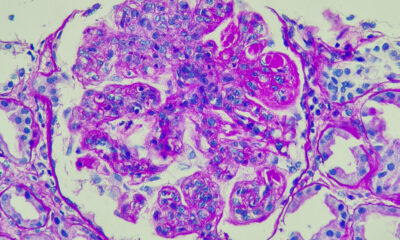Lifestyle
Is OCD residential treatment right for you?

When it comes to mental health disorders, finding the right treatment is crucial. Obsessive-compulsive disorder (OCD) is a condition that can have a significant impact on an individual’s daily life and well-being. For those seeking relief from the symptoms of OCD, residential treatment programs may be an option worth considering. In this article, we will explore what residential OCD treatment entails, who can benefit from it, and how you can make an informed decision about pursuing this form of therapy.
Understanding OCD
Before we delve into the specifics of residential treatment programs for OCD, we first need to understand what this disorder entails. OCD is a chronic mental disorder characterized by persistent and intrusive thoughts (obsessions) that lead to repetitive behaviors or rituals (compulsions). These obsessions and compulsions can be time-consuming and disturbing and disrupt daily functioning. In many cases, people with OCD typically try to suppress or ignore their obsessions by engaging in repetitive behaviors or rituals. Recently, OCD residential treatment in California is emerging as a reliable medical option for dealing with modern cases of this problem.
What is residential treatment?
Residential treatment programs provide individuals suffering from severe and debilitating OCD symptoms with a supportive environment in which they can focus on their recovery. Such programs typically provide intensive on-site therapy within a structured environment, alongside other individuals experiencing similar issues, under the supervision of trained professionals.
Therapeutic approaches in residential treatment programs for OCD
Residential treatment programs for OCD rely on several evidence-based therapeutic approaches to help clients effectively manage their symptoms. Here are some common therapeutic techniques that can be used:
Cognitive behavioral therapy (CBT)
CBT is one of the most effective treatments for OCD and often serves as the basis for residential treatment programs. This therapy focuses on helping individuals identify their obsessions and compulsions while learning strategies to reframe negative thought patterns and break unhealthy cycles of behavior.
Exposure and Response Prevention (ERP)
ERP is a specific form of cognitive behavioral therapy aimed at OCD. It involves gradually exposing individuals to the situations or triggers that trigger their obsessions, while at the same time preventing them from exercising their usual compulsive responses. Over time, this process helps individuals learn healthier ways to deal with their problems.
Medication management
In some cases, residential treatment programs may incorporate medication management into the treatment plan. Prescription psychiatric medications, such as selective serotonin reuptake inhibitors (SSRIs), can supplement therapy and help relieve symptoms in some individuals.
Benefits of Residential Treatment Programs for OCD
Residential treatment can provide several important benefits for people struggling with severe OCD symptoms:
Intensive focus on recovery
Residential programs provide a structured environment with dedicated mental health professionals who focus solely on their client’s recovery. Individuals receive support, guidance and encouragement throughout their treatment journey from a team available 24 hours a day.
Immersion in therapy
Being immersed in therapy in a residential treatment environment allows for consistent therapeutic interventions and increased contact hours on the part of the medical professionals. This intensive approach maximizes the effectiveness of the treatment and allows faster progress to recovery.
Support from colleagues
Residential programs create opportunities for participants to connect with others who share similar experiences through group therapy sessions or daily activities. This peer support promotes a sense of belonging, reduces feelings of isolation and stimulates motivation during treatment.
Individualized treatment plans
Each person’s experience with OCD is unique; therefore, personalized treatment plans are crucial for successful outcomes. Residential programs offer an individualized approach that tailors therapy to the specific needs of each participant.
Is Residential Treatment Right for You?
Although residential treatment programs for OCD offer many benefits, it is important to consider whether they are suitable for your individual circumstances:
Severity of symptoms
If your OCD symptoms significantly interfere with your ability to function in daily life or if lower-level treatments have not provided sufficient relief to date, residential treatment may be an appropriate option to explore.
Commitment to treatment
Residential programs require a significant time commitment and active participation. Consider whether you are willing and able to commit the time and energy required to pursue intensive therapy for an extended period of time.
Financial considerations
Assessing the financial aspect of residential treatment is essential as it can be a significant investment. Contact your insurance company or research available financing options to determine what resources are available to support your decision.
Support system
Evaluate the support system available outside of treatment. Consider whether you will receive adequate support upon completion of the residential program, as returning to everyday life with continued progress is an essential part of long-term recovery.
Conclusion
OCD can be very distressing and affect several aspects of a person’s life. For those seeking relief from severe symptoms, residential treatment programs are a potential solution worth exploring. These programs provide intensive therapeutic interventions within a structured environment, providing individuals with specialized care and peer support that facilitates their journey to recovery.













